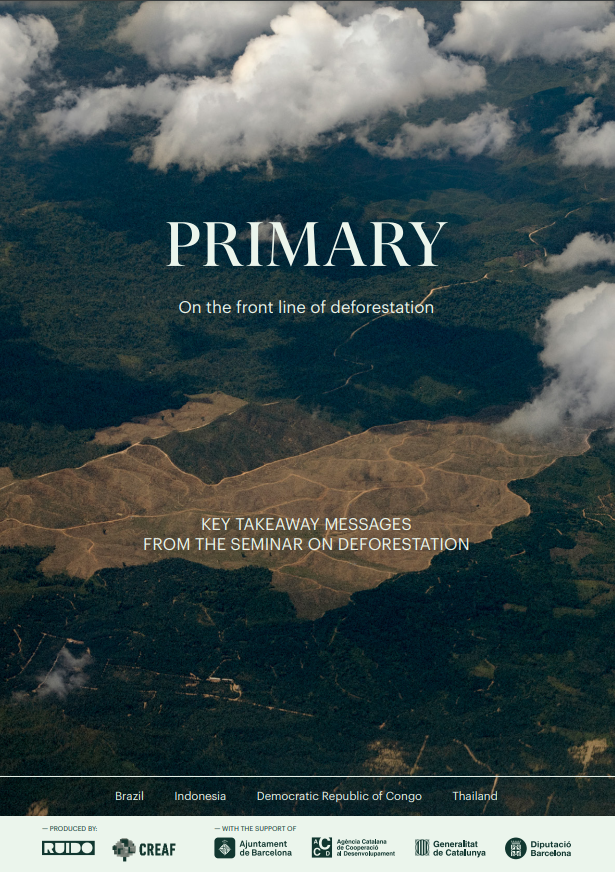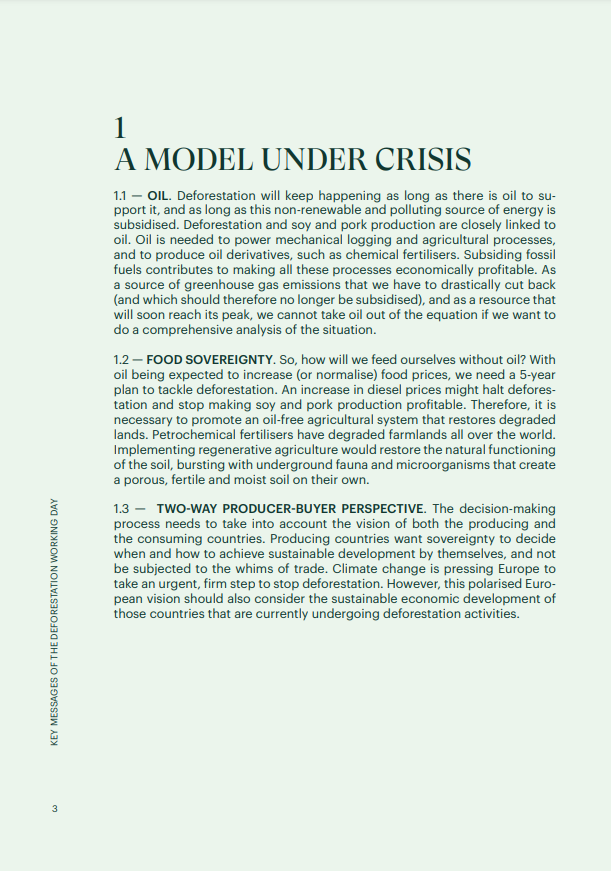To close the PRIMARY project we present a final report of lessons learned during this project. It is a compilation of the conclusions of the meeting with experts related to the deforestation of tropical forests from very different backgrounds: science, administration, journalism and consumer departments, among others. What is the reason for this cross-disciplinarity? The threats to these forests are diverse and one of the main threats is the consumption of soya, palm and other products grown in the Global North, which are cultivated in the Global South.
The workshop ‘Primary – en primera línea de la deforestació’ allowed us to share a lot of data, experiences and knowledge of primary forests; also to better understand how decision making works at the administrative level and even at the personal level, to reduce the impact of the Global North on forests. Consumption is everybody’s business and we are not always aware of it. The main findings have been reported in an openly available report.








This report close the first part of the PRIMARY project, an environmental knowledge and awareness-raising initiative on primary tropical forests coordinated by CREAF and the photojournalism organisation RUIDOphoto. Over the last two years, the team of photojournalists have travelled to Amazonia, Congo and Brazil to learn first-hand about the deforestation of primary forests and its effects on the communities that live in them. To disseminate this knowledge and make it accessible to everyone, during the month of December the main photographs and infographics from the trips have been exhibited in the Ciutadella Park in Barcelona.
A model in crisis, communication, consumption and local initiatives
The conclusions of the report touch on different perspectives of this multifaceted problem. The report contains 9 visions and 24 recommendations or conclusions. Some of the proposals are:
- So, how will we feed ourselves without oil? With oil being expected to increase (or normalise) food prices, we need a 5-year plan to tackle deforestation. An increase in diesel prices might halt eforestation and stop making soy and pork production profitable. Therefore, it is necessary to promote an oil-free agricultural system that restores degraded lands. Petrochemical fertilisers have degraded armlands all over the world. Implementing regenerative agriculture would restore the Natural functioning of the soil, bursting with underground fauna and microorganisms that create a porous, fertile and moist soil on their own.
- Private and public entities and producing and consuming countries should work in a collaborative network.
- The transition to sustainable production in producing countries could be achieved with financial support or joint financing arrangements. In this sense, businesses have an important role to play, and European NGOs such as IDH are getting successful result.
- Raising awareness about the origin of products and showcasing certified products is a must
- It must be understood that if we work to make the supply chain responsible in other countries, we must also work to ensure stable working conditions in our country and be consistent.

